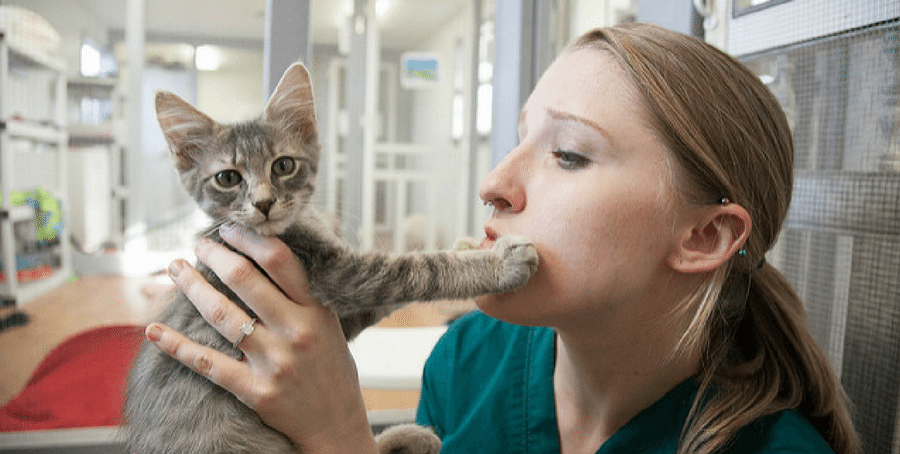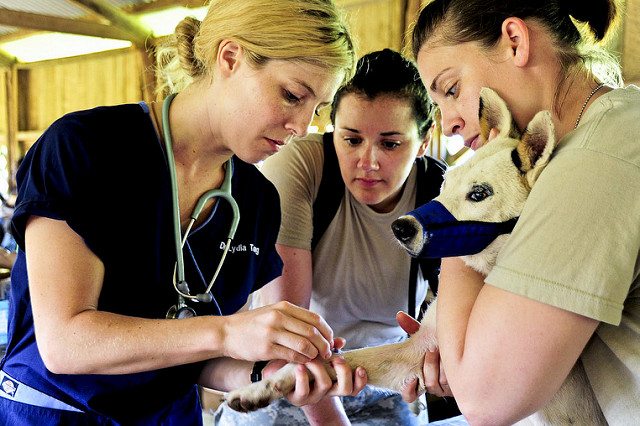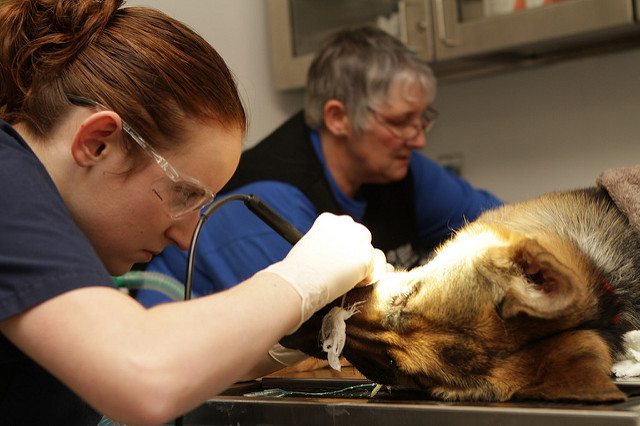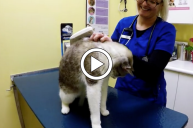Remember to show gratitude to your pet's vet tech the week of October 10.
The work of a vet tech is never done. LVTs, CVTs, RVTs, and veterinary assistants spend countless hours on the job for very little pay. They do what they do because they love their work—which is directly reflected in the care they give pets.
Surgery technicians miss out on lunches when an easy surgery turns out to be difficult. Radiology techs wrangle hyper Labrador puppies to get the perfect x-ray needed for proper diagnosis.
Blood draws lead to awkward flexibility and a lot of squatting which wear physically on a vet tech's body. Emergencies come in as techs are headed out for the day, but they stay three hours late because saving a dog's life is more important than their personal time.
Vet techs are smart people and they do the dirty work, too. They take temperatures, deal with tricky clients, collect and analyze poop samples, remove ticks and fleas, and sometimes get scratched or bit along the way.
The bottom line about veterinary technicians is they work very hard to ensure your pets are loved and cared for while they're in the clinic or hospital.
As a CVT, you have many options as far as your career path. You can focus your studies on critical care, small animal, laboratory procedures, nursing care, and even work at research facilities. The veterinary technician program will also focus on large animals and the prep gets you ready for the veterinary technician national examination (vtne) which all techs will need to pass. Most of the programs are found at a community college and an associate's degree.
Most are passionate about animal care, veterinary medicine and are pet owners themselves. What's wonderful about the associate degree is that you can work at a veterinary clinic or an emergency veterinary hospital. The veterinary technology program will prepare you for a large number of entry-level jobs. Veterinary technicians work really hard to excel in the two-year degree program so they can pass that exam!
In order to keep your technician certification, you need to pursue continuing education courses which are offered by a large variety of organizations.
The kisses from a slobbery puppy, the head nuzzling from a bird, the purring from a cat, and the challenge of reptile medicine are all worth it.






